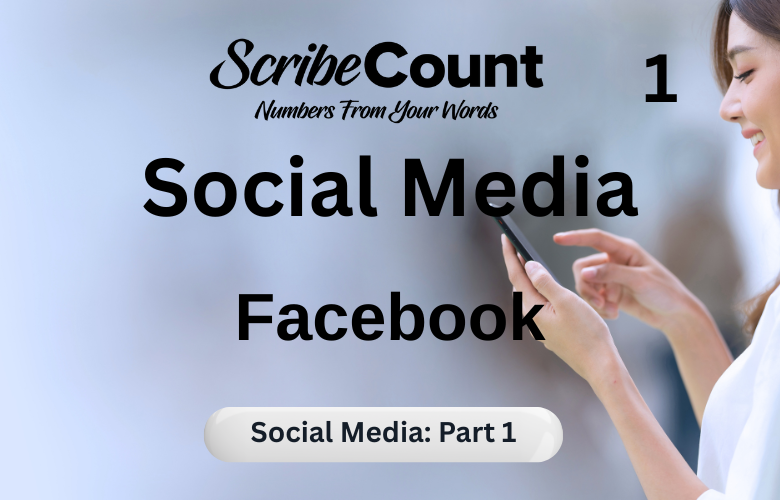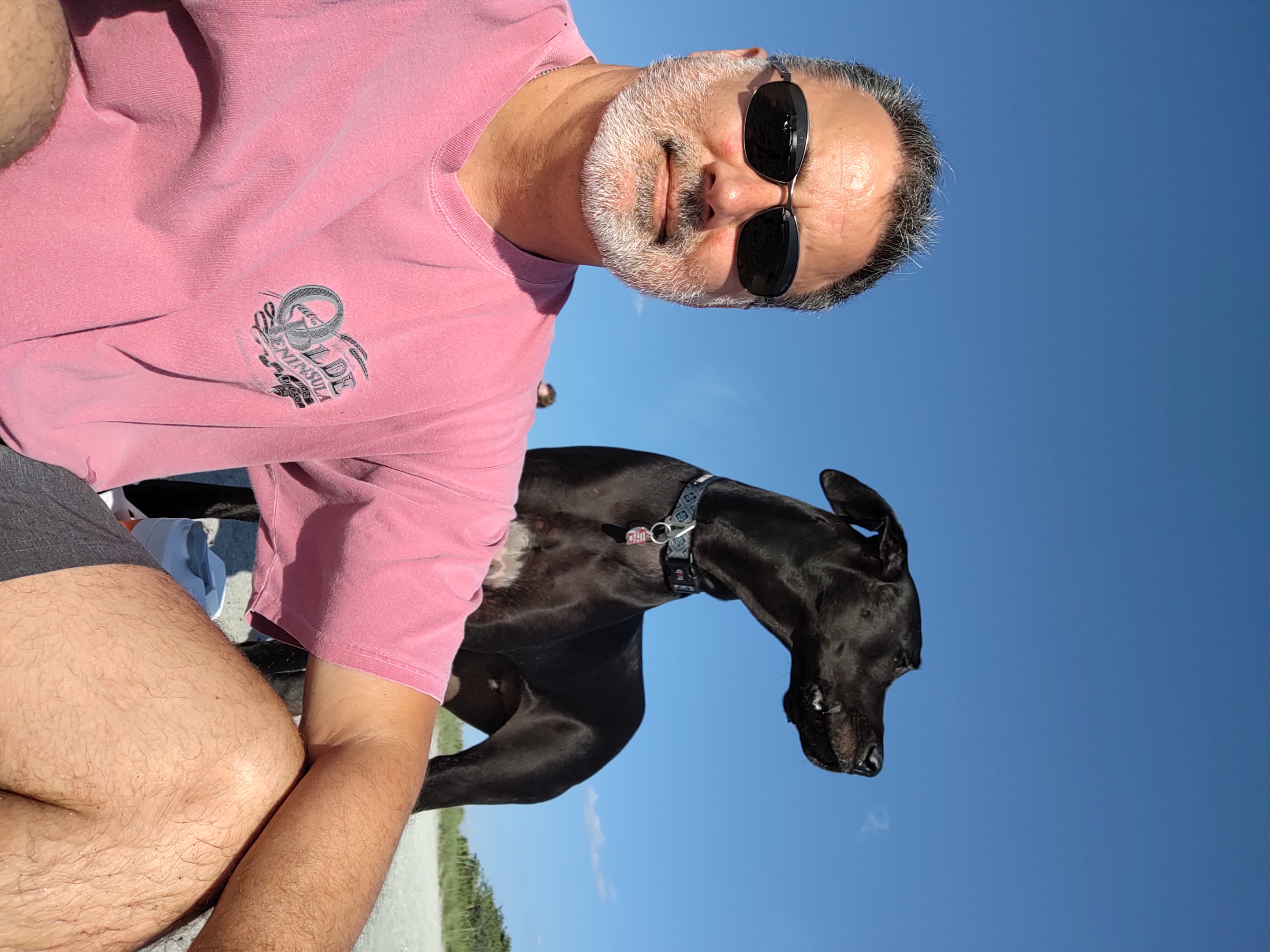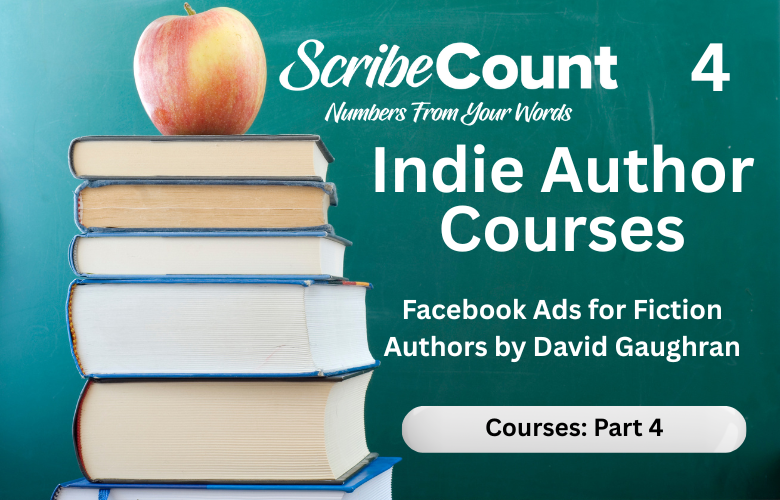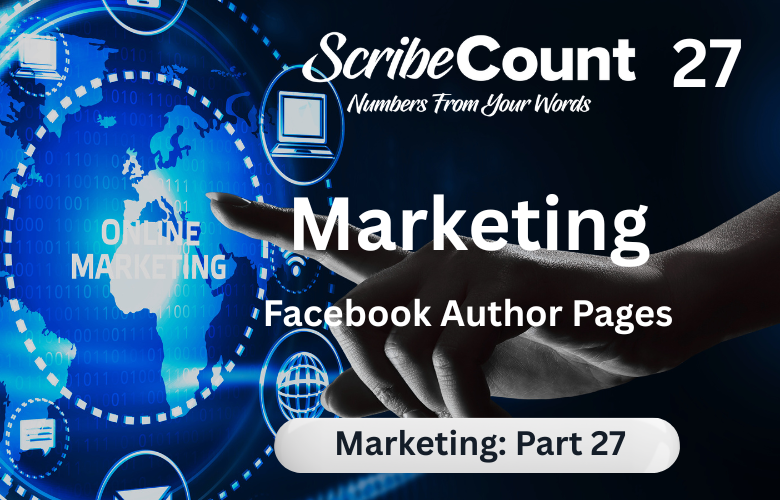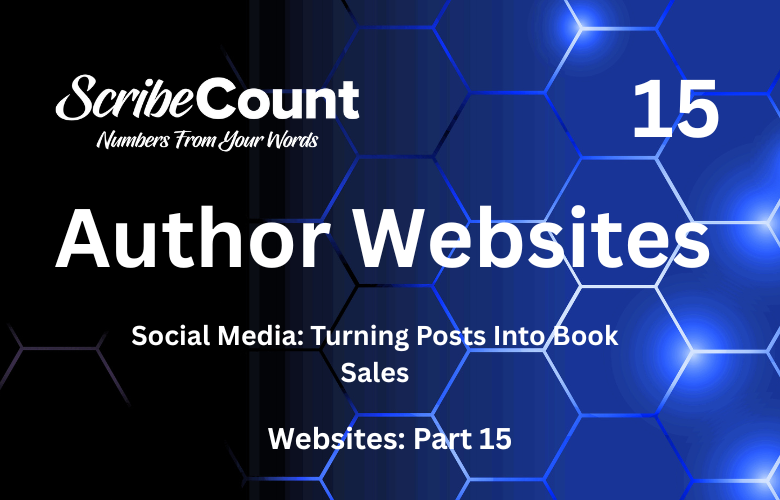Facebook for Indie Authors
Before we start, know these two things:
- Facebook ads reach 68 percent of U.S. book buyers each month.
- Indie authors who retarget readers using Facebook Pixel see a 30 percent increase in their conversion rate compared to first‑time ad audiences.
When it comes to social media, Facebook reigns supreme. There is really no debate. EVERY indie author marketing course has Facebook as its core platform for both finding and reaching readers. With 3 Billion active monthly users Facebook is ahead of its competitors by a large margin. The better indie authors understand Facebook the better they can leverage that reach.

Facebook has become much more than a social network; for indie authors, it serves as a dynamic platform where creativity meets reader engagement, storytelling meets sales, and community meets commerce. What began as a college experiment has evolved into a multibillion‑user powerhouse—one that indie authors around the world now use to connect, promote, and sell. In this comprehensive overview, we’ll trace Facebook’s development from inception to today, introduce the founders, delve into its expansive market reach, and outline the strategies authors can deploy—ranging from author pages to Reels, Instagram, integration with tools like ScribeCount, and targeted ad campaigns. With SEO‑rich insights, pros and cons, cost breakdowns, and a positive conclusion, this guide is crafted to empower you to turn Facebook into your author stage.
A Brief History: From Campus to Global Platform
Facebook was created in February 2004 by Mark Zuckerberg, then a Harvard sophomore. Alongside college housemates Eduardo Saverin, Andrew McCollum, Dustin Moskovitz, and Chris Hughes, Zuckerberg launched “The Facebook” to connect Harvard students virtually. The original focus was simple—online profiles, friends, and photos—but by 2006 the platform opened to the public, and its functionality rapidly grew to include groups, pages, and robust advertising.
When the company went public in 2012, Facebook reported over one billion active users. Over the next decade, it acquired Instagram (2012), WhatsApp (2014), and Oculus (2014), as well as launched video-rich features such as Facebook Live and Instagram Reels. Today, Facebook is run by CEO Mark Zuckerberg and its core executive team, maintaining its global headquarters in Menlo Park, California.
Market Reach & Demographics
As of mid‑2025, Facebook claims around 2.9 billion monthly active users worldwide. The platform is most popular with adults aged 25–54, with roughly 75% of users falling within that age bracket, according to recent public data. Younger audiences, including teens aged 13–17, make up about 25% of daily active users, while users 65+ comprise 10%. For authors, this demographic spread offers a unique opportunity: a substantial base of readers in their peak buying power years, supplemented by younger audiences shaping reading trends.
Facebook’s connection to Instagram (now nearly 2 billion users), plus enhancements like Instagram Reels and Facebook Reels, offers immersive, short‑form video options perfect for showcasing book teasers, behind‑the‑scenes glimpses, and live author Q&A sessions.
Facebook Advertising Services
Facebook’s advertising platform is among the most granular and scalable content marketing tools available. Indie authors can leverage sponsored posts, carousel ads, video ads, and story ads across Facebook, Instagram, and Reels. Using Facebook Ads Manager, campaigns are built with two basic structures: campaign objectives (awareness, consideration, conversions) and ad sets that target specific audiences.
Targeting can be layered based on demographics (age, gender, location), interests (e.g., fiction readers, genre fans), behaviors (online buyers), and even connections (fans of competitor authors or similar book pages). Lookalike Audiences help authors target new readers by mirroring characteristics of existing fans.
Costs vary depending on bidding strategy (cost per click—CPC, cost per thousand impressions—CPM, cost per action—CPA). For indie authors, typical CPC ranges between $0.10 and $0.50, with conversion rates for book purchases or mailing‑list sign‑ups averaging 2–5%. Small daily budgets of $5–$20 often suffice to test campaigns, though scaling might require $50–$100+ per week. Facebook’s learning curve is moderate: initial setup of an author page and basic ads can be done in a few hours, although mastering segmentation, pixel tracking, and split testing can take weeks of trial and error.
Author Pages: Creating Community & Connection
Facebook Author Pages offer authors a professional presence, complete with cover imagery, pinned posts, and Story highlights. Authors share excerpts, event announcements, cover reveals, and polls, encouraging comments and dialogue. Pages provide analytics—Page Insights—detailing post reach, engagement, and follower growth, enabling more data‑driven content strategies.
Live video is powerful. Many indie authors host Q&A sessions, “Ask Me Anything” events, or live readings. The platform’s algorithms now favor live and video content, helping authors expand reach organically. Facebook Events integrates with pages, enabling authors to promote virtual readings, workshops, and launch parties.
“Facebook isn’t just a stage—it’s a launchpad where indie authors can ignite the imagination of readers worldwide.”
Instagram & Reels: Visual Storytelling Amplified
Through Instagram, authors tap into a younger, visually oriented audience. Reels—short‑form videos up to 90 seconds—are ideal for book trailers, writing tips, or fun glimpses into the author’s world. Cross‑posted to Facebook, Reels doubles content exposure. Instagram Stories, with swipe‑up links (for author pages with 10K+ followers) or link stickers, directly funnel readers to purchase pages or mailing lists.
Integrations: Working with Tools like ScribeCount
ScribeCount integration allows authors to track the performance of their Facebook and Amazon ads in analytics dashboards geared toward book sales, using affiliate or tracking links. When an author runs a Facebook ad with a link using ScribeCount’s tracking code, every click, sale, and revenue generated is recorded centrally and displayed in their ScribeCount dashboard. This integration helps authors calculate return on ad spend (ROAS), adjust targeting or ad creatives, and align marketing spend with revenue. Authors combine ScribeCount data with Facebook Pixel events to optimize leads and sales campaigns across multiple channels.
Beyond ScribeCount, Facebook integrates with tools like Mailchimp, Wix, Shopify, and BookFunnel. Many newsletter‑hosting services connect to Facebook lead ads; e‑commerce platforms sync with Facebook Shops. Facebook Pixel enables cross‑platform retargeting and performance measurement.
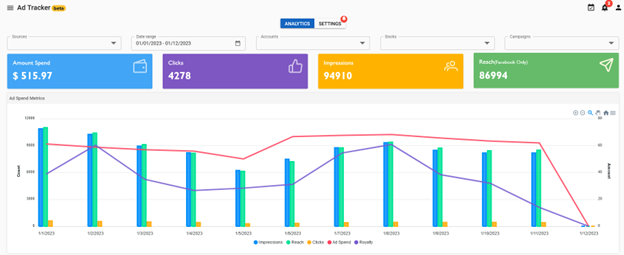
AI Integration and Its Impact on Future Features
As Facebook evolves under its parent company Meta, artificial intelligence is no longer a peripheral enhancement—it’s becoming the core engine driving the platform’s user experience, content distribution, and ad performance. For indie authors, the implications of Facebook’s AI expansion are both immediate and long-term, offering promising tools for automation, smarter audience targeting, and deeper reader engagement.
Meta has heavily invested in generative AI and machine learning tools to personalize what each user sees in their feed, recommend groups or content, and improve the performance of ad delivery systems. AI helps determine which posts appear where, which ads get prioritized in auctions, and which users are more likely to engage. For authors running ads, this means campaigns are increasingly optimized in real time by Facebook’s AI to ensure ads are shown to readers most likely to click, sign up, or buy.
One emerging area of AI use is creative automation. Facebook’s ad platform already uses dynamic creative optimization to automatically test headlines, copy, images, and videos. In the near future, authors may be able to input a book blurb or cover and allow Facebook’s AI to generate ad variants tailored to each reader segment. Meta’s upcoming “AI Sandbox” tools could offer indie authors quick ways to create short-form video ads or Reels based on just a few inputs—saving both time and production cost.
On the organic side, AI is also reshaping content suggestions and community building. Facebook’s algorithm uses AI to recommend relevant author pages, groups, and live events to users based on behavior, reading habits, and shared interests. This helps indie authors get discovered not just by friends of fans, but by entirely new reader groups who wouldn’t otherwise cross paths. Combined with Facebook’s recent expansion into AI chatbots and assistant tools for Messenger, authors may soon be able to deploy smart bots on their pages to answer reader questions, recommend books in a series, or deliver signup links—all without manual response.
Meta has also introduced generative AI editing tools for Reels and Stories. Authors creating short-form video content may find themselves using AI to automatically enhance lighting, remove background noise, or auto-caption clips—all critical for accessibility and professionalism in mobile-driven environments. These tools lower the barrier to entry for authors who aren’t video editors, enabling broader adoption of visual storytelling.
Looking ahead, Meta is testing AI agents and digital assistants that could help run author pages in the background—scheduling posts, analyzing performance, and even suggesting improvements. Authors could eventually receive daily summaries of how their posts, ads, and reader interactions are performing, with AI-driven suggestions on what to post next, what tone works best, and which readers to re-engage.
This fusion of AI with Facebook's publishing and advertising tools means indie authors won’t just be working harder—they’ll be working smarter. While human creativity remains the heart of author marketing, artificial intelligence is quickly becoming the brain that helps shape its efficiency. Authors who embrace these tools early will gain a significant advantage, using automation and real-time insights to fine-tune their messaging, stretch their budgets, and expand their audience more effectively than ever before.
AI will not replace the author’s voice—but it will increasingly amplify it in more strategic, automated, and adaptive ways. For indie authors operating in a competitive digital marketplace, that edge could prove invaluable.
Costs, Learning Curve & Campaign Options
Costs are flexible. Setting up a page is free. Running ads costs whatever the author decides—$1/day minimum. Typical effective budgets for indie authors begin around $5–$20/day for discovery campaigns targeting sign‑ups, and $10–$50/day for conversion campaigns focused on book sales. A higher budget enables broader reach and faster audience building.
The learning curve is moderate; with intuitive Ads Manager, authors can build simple campaigns quickly. However, running advanced campaigns involving retargeting audiences, pixel event setup, and split testing requires more research, time, and experimentation. Facebook Blueprint offers free certification courses to help.
Pros and Cons
Facebook offers remarkable reach, granular targeting, and cross‑platform content posting. Author pages foster direct connection, and integrations with ScribeCount and Pixel help optimize spend. Visual formats like Reels and live streams offer rich storytelling opportunities.
Challenges include algorithm shifts that can reduce organic reach, competition for attention, increasing ad costs in popular niches, and the time investment required to master ad strategy and pixel tracking. Authors must balance ad spend against margins and be prepared for ongoing testing.
Conclusion: Facebook is a marketing powerhouse.
Facebook, Instagram, and Reels together provide indie authors with an ecosystem that’s free to join and scalable to any budget. Pages, groups, and visual content create genuine reader relationships, while ads empower targeted growth. Integration with ScribeCount brings clarity to sales attribution, enabling agile optimization of marketing spend. Despite minor drawbacks like the learning curve and fluctuating ad costs, the platform’s advantages far outweigh the challenges. For authors ready to expand visibility, foster community, and boost sales efficiently, Facebook remains a must‑use marketing powerhouse.
